AYURVEDA
Everyone knows that Ayurveda, the oldest system of medicine in the world, originated in India over 5,000 years ago. The term Ayurveda is derived from the Sanskrit words ‘Ayur’ (life) and ‘Veda’ (science or knowledge). The ‘Susruta Samhita’ and the ‘Charak Samhita’ are profound expositions of this ancient method of healing. Based on the maxim ‘The disease lies within you; so does the medicine,’ this science uses only substances found in nature to cure all diseases.
What is perhaps most amazing about Ayurveda is that this science had already advanced and flourished in India when the rest of the world was still in the dark ages. Much later came modern medical systems like Allopathy. In today’s world most people favour Allopathic medicines simply because it ensures instant relief. But for every single Allopathic drug, aren’t there at least four side effects?
However, in the last few decades people have started reverting to this ancient, safe and sure method. Ayurvedic medicinal practices seek to balance the three basic elements and restore the disturbed rhythm of the human body, mind and soul.
In order to keep alive the tradition of Ayurveda we at PPROM have planted wooded orchards of various trees that have salubrious effects. With environmental quality in urban areas deteriorating by the day, a reversion to the goodness of nature is the need of the hour. Clean breathable air with correct moisture content in it and oxygen rich environment are only the beginning in the list of benefits. Cooler climate, afforestation, increased rainfall, prevention of soil erosion and maintaining ecological balance are others.
Ayurvedic trees and their benefits………

Jambhool (Java Plum)
Effective in blood purification and diabetes
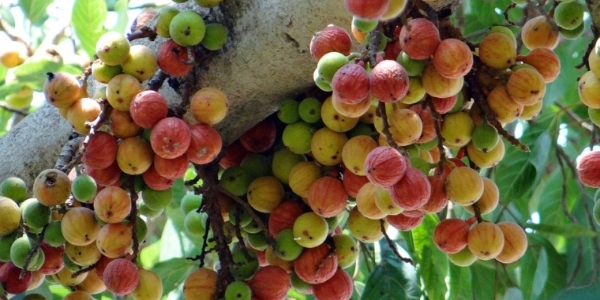
Umbar (Indian Fig)
Useful for reducing swelling; its fruit balances kafa and pitta dosha
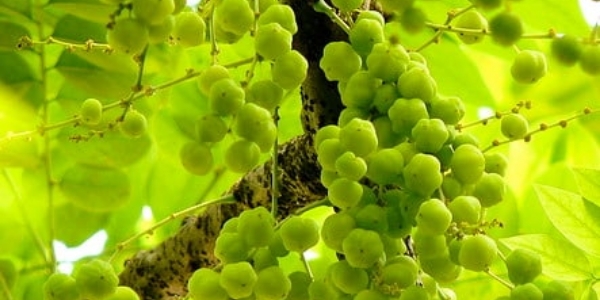
Aavla (Indian Gooseberry)
Rich in vitamin C; good for reducing body heat, swelling, nausea, fatigue

Cocoa (Cocoa)
Useful for decreasing asthma, hypertension, cholesterol, skin disease and fat
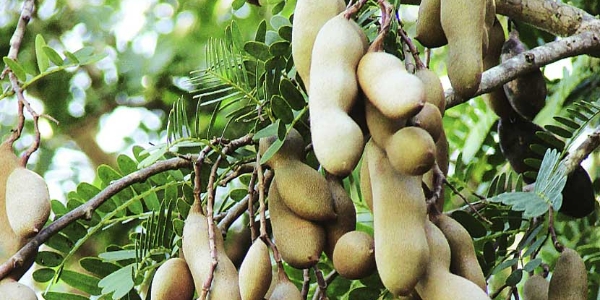
Chinch (Tamarind)
Ash of shells useful for treating urine infection; leaves reduce hyperacidity, stomach ailments and febrile dysentery
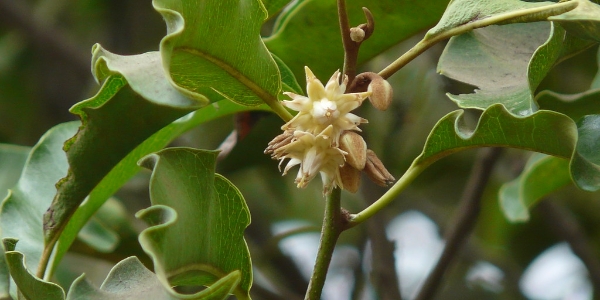
Bakul (Spanish Cherry/Medlar)
Brushing with peel paste strengthens loose tooth; eating ripe fruits diminishes body heat
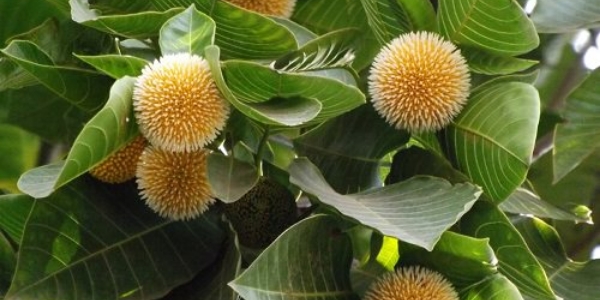
Kadamb (Burflower)
Leaf juice effective on wounds and decoction of stem good for cough
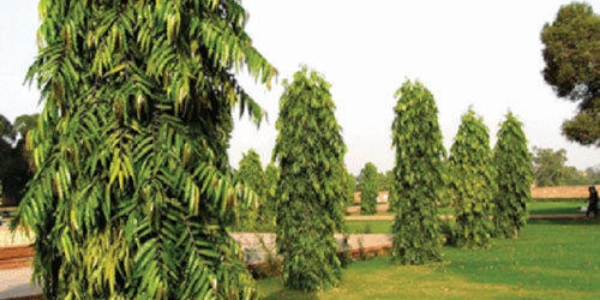
Ashoka (Saraca asoca)
Powdered seeds eaten in betel leaves cures respiratory diseases
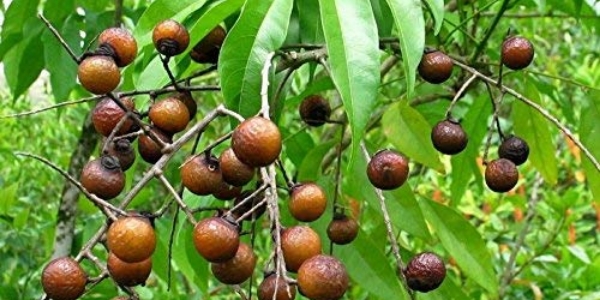
Rudraksh (Woodenbegar)
Wearing correctly-strung rudraksh beads eliminates negative energy
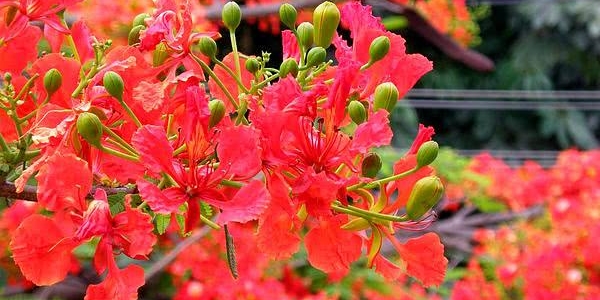
Gulmohar (Flame tree)
Drinking water-soaked black pods clears bowel movements
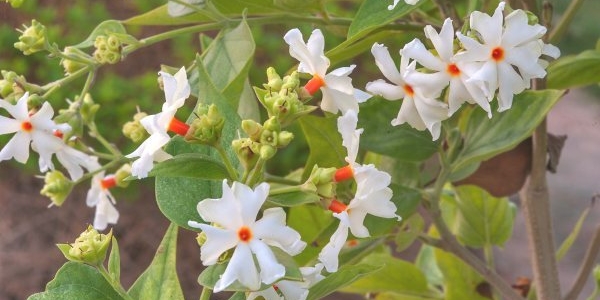
Parijat (Night Jasmine)
Drinking decoction of leaves on empty stomach relieves arthritic pain
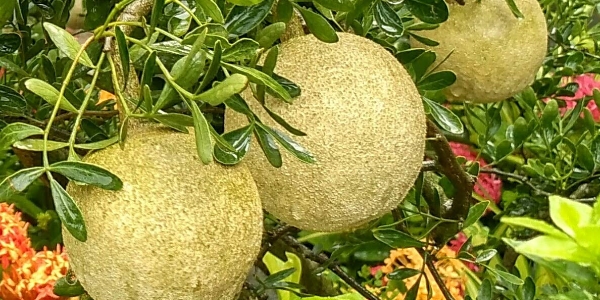
Bael (Stone Apple)
Leaf juice good for jaundice and piles; fruits relieve heat and intestinal discomfort; decoction of leaves useful for tonsillitis
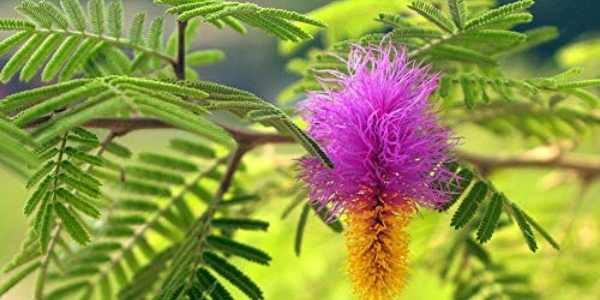
Shami (Prosopis Cineraria)
Pods and foliage good for reducing stomach heat, loose motions and heat strokes
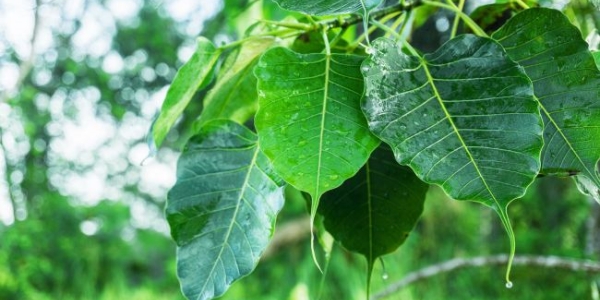
Pimpal (Peepal)
Life-force giving tree; eating ripe fruits improves stammering

Aapta (Bidi Leaf)
Juice of leaves beneficial in ulcers and inflammatory injury in small intestine
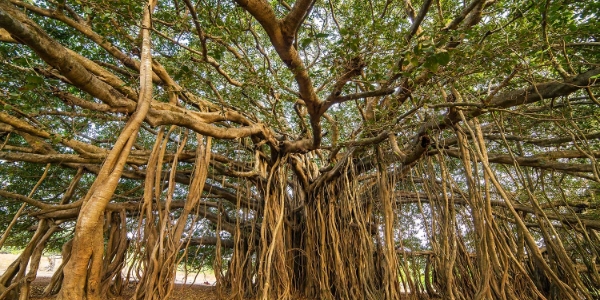
Wud (Banyan Tree)
Protects against air pollution and toxic gases

Bambu (Bamboo)
Useful for growing on bunds of agricultural fields

Velchi (Cardamom)
Rich in vitamins B and C; beneficial for digestion and increasing red blood cells; effective against cough and chest congestion
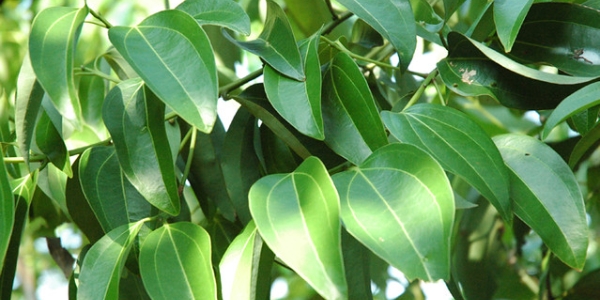
Tamalpatra (Bay Leaf)
Rich in calcium, potassium, iron and selenium; reduces cholesterol and relieves indigestion; cleanses body and slows down aging









